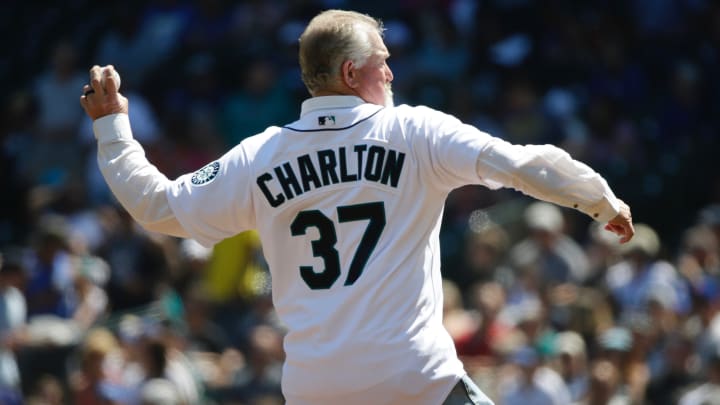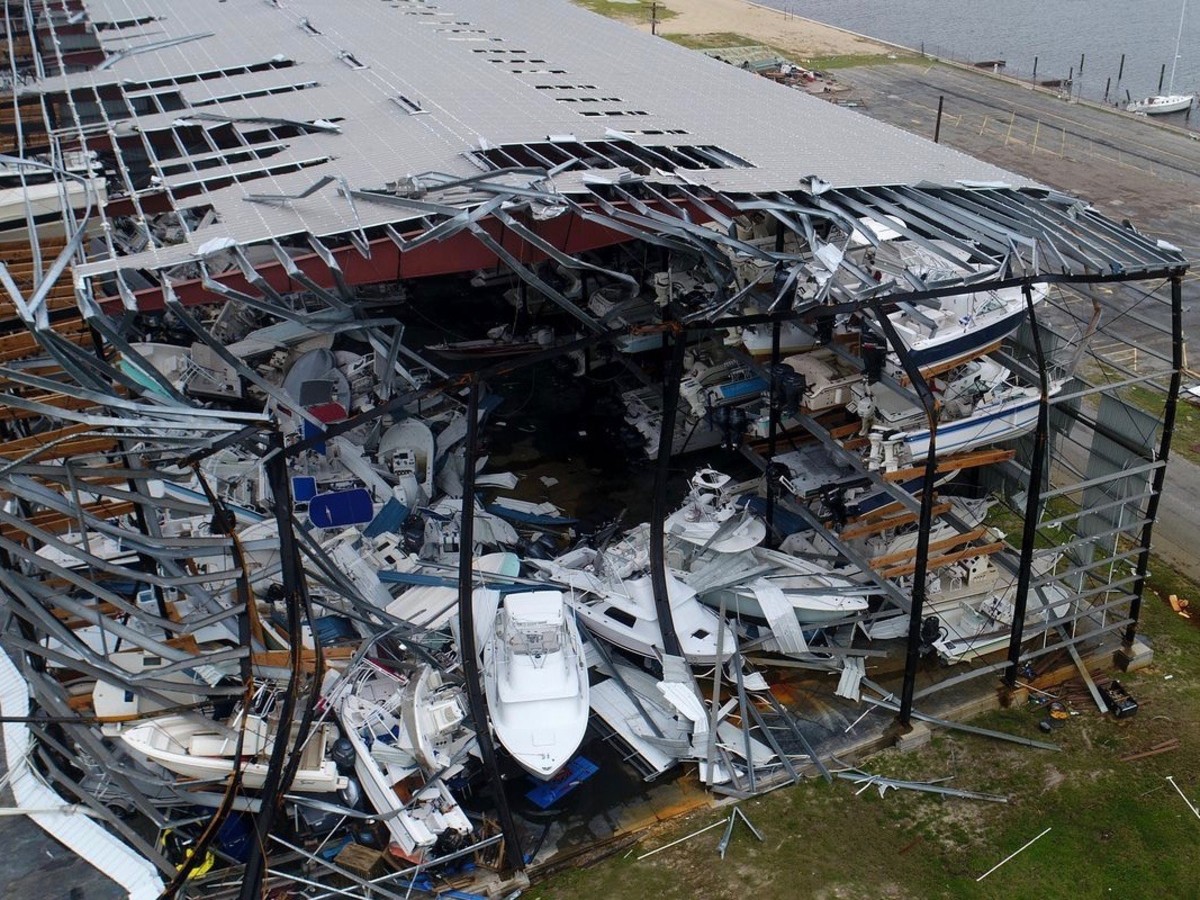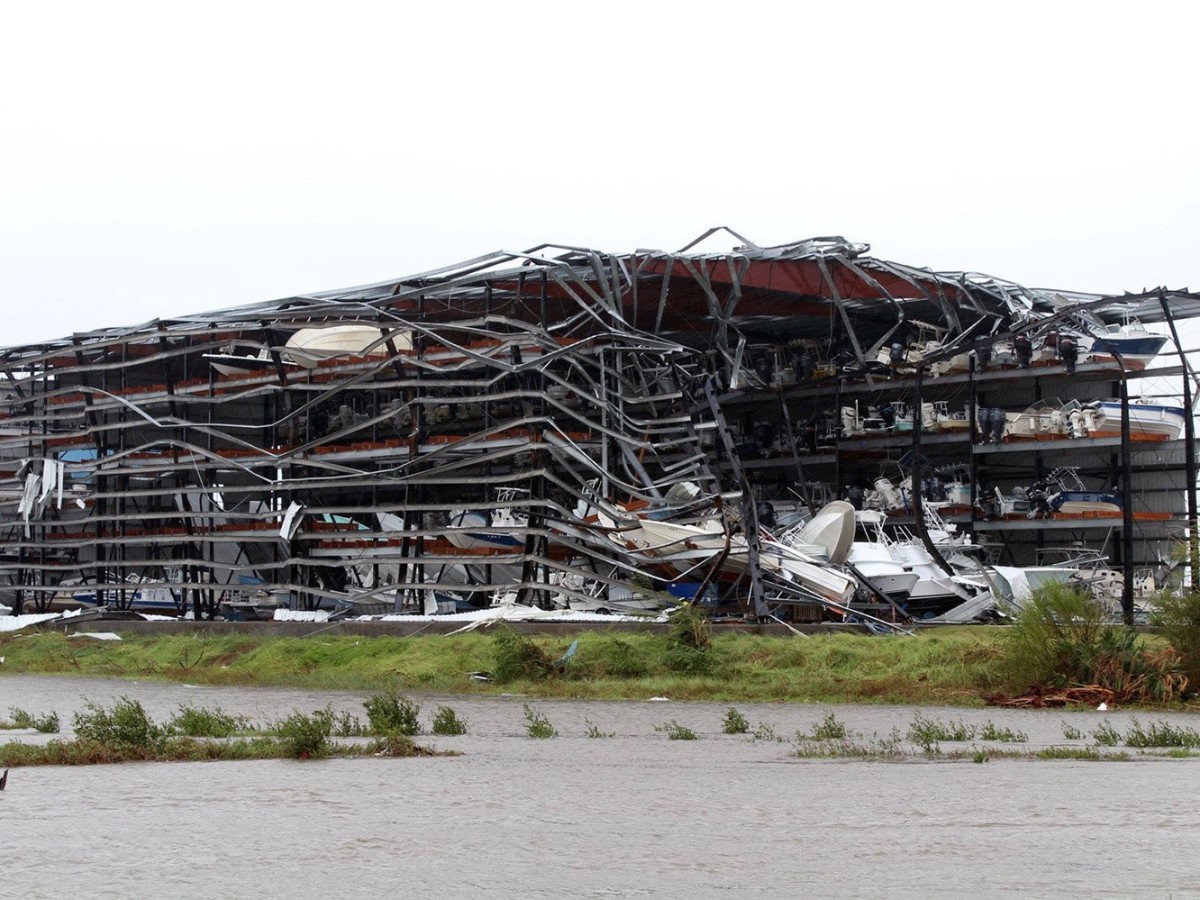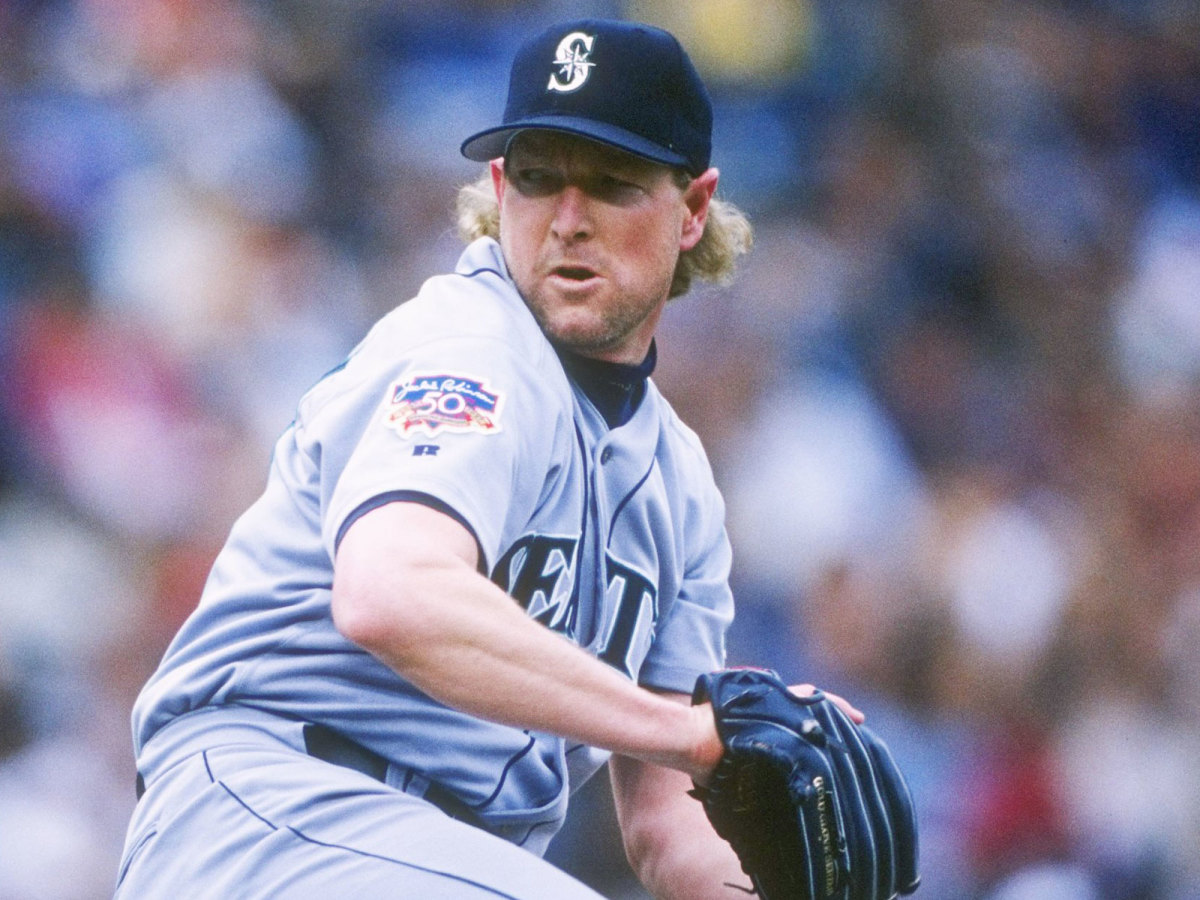Far From Baseball, Norm Charlton Looks to Rebuild His Hometown After Hurricane Harvey

It was a short night of sleep for Norm Charlton when the storm pounded his hometown, and a long drive back to see if he still had a home.
Hours after Hurricane Harvey slammed Rockport, Texas, on Aug. 25, Charlton—the longtime major league pitcher nicknamed “The Sheriff”—left his brother-in-law's home in nearby Castrovilleto return a devastated hometown. Rockport was Harvey’s first major victim before the storm moved northeast to flood greater Houston. The storm’s eye hovered right over the coastal vacation town of some 10,000 people, accelerating winds to over 130 mph.
Projections had varied from Category 1 at the outset (“A good storm,” Charlton says, “but one we’d have probably ridden out,”) to Category 3 once it bounced around the Yucatan. After vacillating whether to leave town or not, Charlton spent Wednesday and Thursday securing his residence, helping friends board up their homes and packing up his truck to take his wife and two children to Castroville, about 180 miles north of Rockport. People who live on the Gulf have come to expect hurricanes; they don’t expect having to combat a Category 4 storm that experts deem severe enough to hit “once in every 500 years.”
In Rockport, the 54-year-old Charlton is one of the local fishing guides. To baseball fans, he’s a memorable reliever from a bygone era. Whether it’s because of his blonde locks on a dusty baseball card, his role in the Reds’ “Nasty Boys” bullpen of the early 1990s or his years as Seattle’s flamethrowing closer, Charlton established himself as a dependable lefthanded reliever and hard-nosed teammate over his 14-year big league career that ended in 2001. He left baseball for good in 2008 after a long season as the Mariners bullpen coach. His 24 years in baseball were over, and a life on the water with his family—which includes a 12-year-old daughter and a 10-year-old son—awaited.
How An Indians Reliever Helped Get People To Safety During Hurricane Harvey
With a newly minted boat captain’s license, he relocated to Rockport where his parents had their retirement home and he could stay out of a suit and tie for work. Raised in Houston and San Antonio and a Rice University alumnus, Charlton was always bound for Texas once his baseball life concluded. During baseball offseasons, he’d dodge the cold by heading to Rockport to hunt and fish with his childhood best friend, who also works as a fishing guide in town. Charlton runs Norm’s Big League Fishing Adventures, which allows him to spend his days on the water and guide vacationers into the warm waters of the gulf for big game fishing. The boat goes out at 6 a.m. every day.
“I could have lived anywhere after spending my career in baseball,” Charlton says. “A big reason why I chose here is if I come back with three fish and they have 30, I’m the goat. It doesn’t matter that I played in the big leagues for 14 years.”
As Charlton entered the city limits on the morning of Saturday, Aug. 26, power lines were strewn across local streets, telephone poles were bent to 30-degree angles or snapped completely, and two-by-fours rested where homes once stood. Mobile homes “looked like they just suffered a gas explosion,” he says. A fusillade of collapsed street signs, tree branches and other mangled debris littered front yards and the roads that families often frequent for a final week of vacation.

Pleasure yachts that rested on the gulf all summer were blown onto land by the winds. Many spray-painted “FOR SALE” onto their boats, desperate to salvage any money to try and rebuild the lives that they had lost overnight. Airplanes sat ruined inside of their hangars at the local county airport. While the TV cameras and national attention moved to a flooding Houston, Rockport sat destroyed and largely overlooked.
Charlton’s home suffered some roof leakage and a ruined fence, but it avoided any catastrophic damage. The extent of his cleanup would be hours sorting through the piles of debris and leaves blown off his oak trees. His parents and in-laws were similarly fortunate. “It’s just luck,” Charlton said. “You can look down the block and count 10 homes. Some of them look like they’ve just been power washed, others are blown off their foundations. It doesn’t matter if the home is $600,000 or $6 million.”
He found his friend, Bruce, who was heading up with his two sons to check on their home in the affluent Key Allegro neighborhood. When they arrived, the four of them looked through a house two-thirds destroyed, the gulf waters plainly visible out of the back of the ruined foundation.
“It’s devastating to watch,” Charlton says. “You let the little boy cry, realize your life will be a mess for a year, but you’ve got insurance. All you can do is clean up and start rebuilding.”

Charlton’s gruff voice is part of what made him such a memorable character during his playing days. If there was a fight, Charlton would find himself in the middle. If he felt his teammates were being too soft, he’d be the guy to fire them back up. He takes pride in his organized “borderline OCD” demeanor that can be taken as brusque. Then he starts to talk about his adopted hometown, lovingly referred to as a “drinking village with a fishing problem.”
“I’m not a guy that cries, but my wife and kids have seen me cry multiple times over the last few days,” Charlton says. “When I was coming home Saturday, I had tears for an hour. There are a lot of people here who have enough money to rebuild things, but it’s really sad for the people who live here full-time who are sitting in a hotel somewhere with no idea of what to do.”
Charlton estimates that the town will be without power for some three to six weeks and that it will take a year for the town to return to full function. Without power, you can’t get fresh water reliably pumped to the nearby tower, and all the power lines are still being cleaned off of the city streets. For now, the town will run on a lot of generators and hard manual labor. Charlton compliments the police presence and help from others—whether it’s the residents of Castroville, New Braunfels Seguina or San Antonio donating money and goods or the couples who drove south with smokers in tow to cook up hundreds of dollars worth of free brisket for the locals.

Even with their own properties ruined by the storm, several Rockport residents headed to Houston with their airboats to aid in flood rescue. “We’re Texans,” Charlton says.
For now, Charlton has to determine whether to enroll his kids in school in Castroville for the year—the local school is canceled indefinitely until the town can return to basic functions—and help rebuild his property and those of his friends. Days are spent shuttling between Rockport and Corpus Christi to secure the right tools, to pick up some fast food and return to the town decimated by a generational hurricane. Memories of fishing tours are distant, just mere illusions of easy summers past when the hardest part of the day was a 5 a.m. wakeup.
Houston Residents Find Comfort And Community As Astros Return Home After Hurricane Harvey
After the storm moved north and Charlton could shuttle between Castroville and Rockport, he took his kids to tour the wreckage. He knows a host of people who rode the storm out in town (“Never again, they told me; never, ever again,”), and wanted to assure that his children will never make such a mistake. Perhaps the catastrophic damage will loom like a monster inside their childhood memories, but not so much to deter them from living near their father’s favorite place.
“We live on the coast, and odds are they’re going to live here,” Charlton says. “If we have a hurricane approaching and they say to get out, you get out. We’ve seen what this does.”
